The Economic History Research Library
The Economic History Research Library is a nice hidden corner located on the third floor of the Central Library of Corvinus University, housing volumes of historical interest on economic history and the theory of economics, produced in the 16th century or later. The documents preserved in the library may serve as a basis for research in numerous fields. Many related theses have been written. Dedicated researchers work with the material of our valuable volumes, investigating, for example, Pál Teleki’s works on geographical economics, or the beginnings of Hungarian economic thinking. The majority of the volumes are written in German and Latin; some of them are available in translation in the Central Library. Obviously, the Library also houses books and publications written in Hungarian.
In 2008, a volume entitled Liber Oeconomicus… was published to celebrate the 60th anniversary of Corvinus University and its Library. The work, edited by Éva Szőnyi, was intended to inform the wider public about the treasures and values preserved in the Library. To represent the diversity of the collection, colour illustrations of the volumes are included. Currently, the Research Library is preparing for its 70th anniversary. The list below, accompanied by photos taken in the Library, gives an insight into books and publications (either included or not in the volume Liber Oeconomicus…).
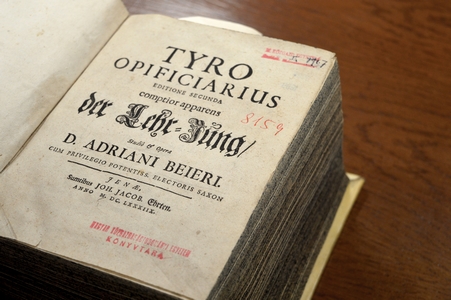 |
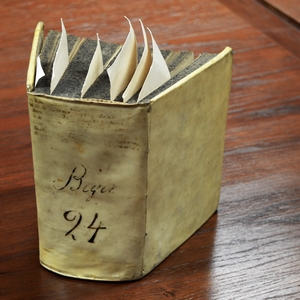 |
[1_kolligatum; 2_kolligatum] Adrian Beier’s collection of publications bound togethe r. It consists of those publications issued separately in the late 1600s that Beier used for teaching.
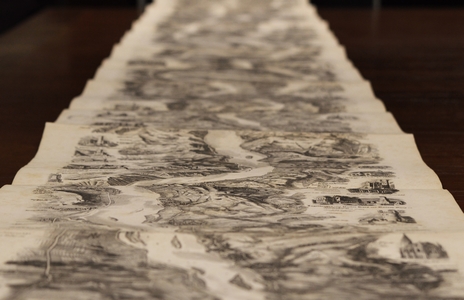 |
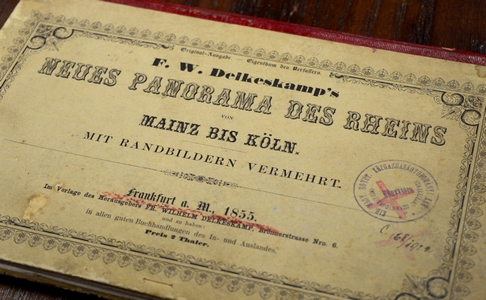 |
[4_rajna; 3_rajna] The Rhine area from Mainz to Cologne. The topography and towns (and their sights) are represented on the two sides.
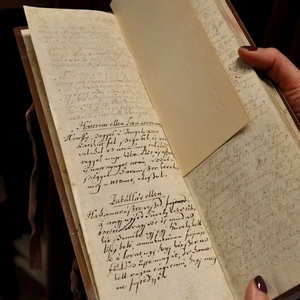 |
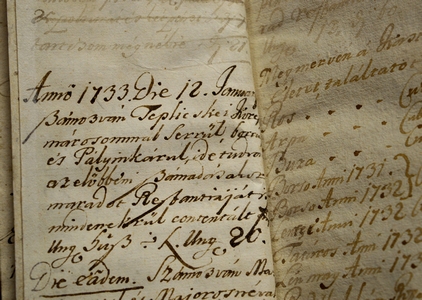 |
[5_liber; 6_liber] Liber Oeconomicus, the book where the title of the illustrated volume published for the 60th anniversary of the University Library comes from. The manuscript, originally bound in wood, dates back to the 17th century. It contains lists and recipes.
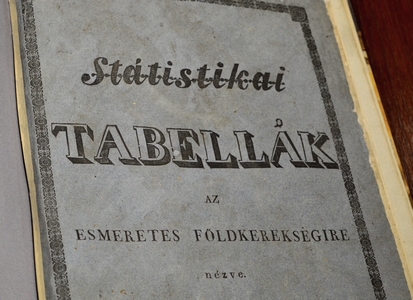 |
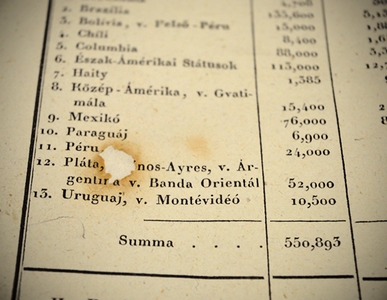 |
[7_statistika; 8_statistika] A collection of statistical data “for students”, published in 1832. The data pertain to the world’s countries, their population, area, “directors” and religions.
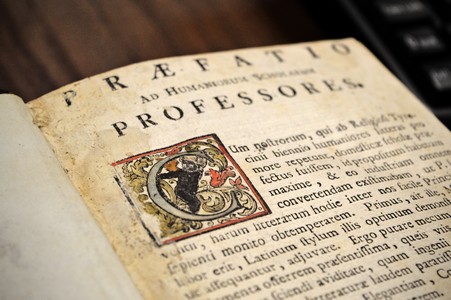
[9_iniciale] Initials rarely appear in printed volumes. The initial of the introduction to Francisco Wagner’s Latin dictionary is a coloured copper engraving.
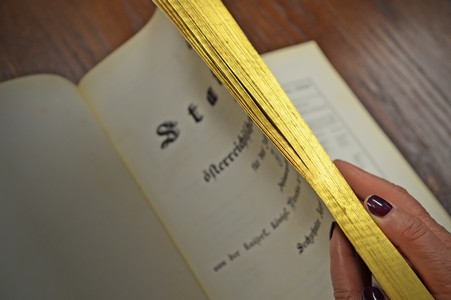
[10_arany] In the Research Library, several volumes contain pages ornamented with gold.
